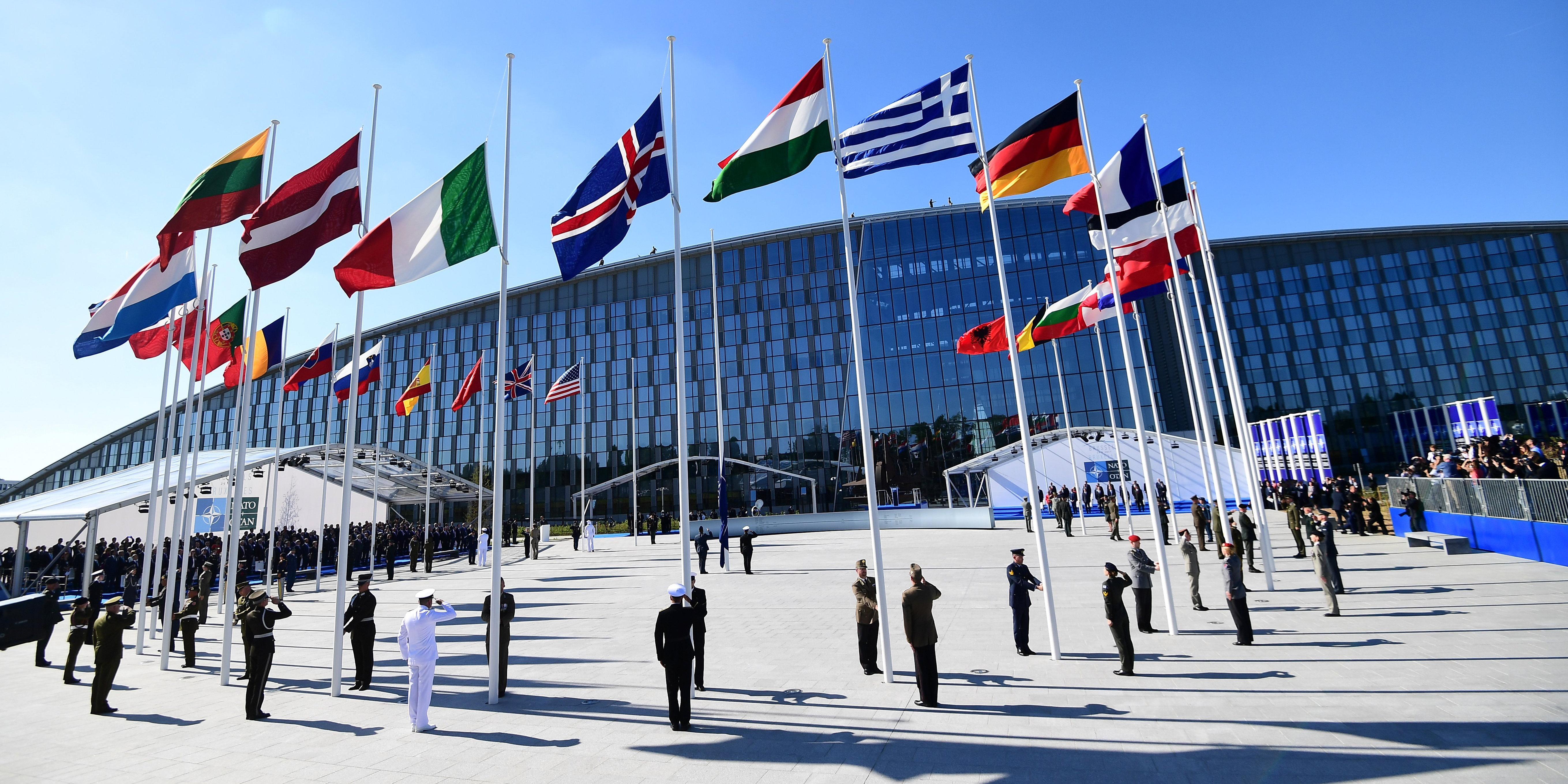
What is unilateralism? What is multilateralism? In this free resource on foreign policy, explore why leaders address some challenges independently and others as part of a team.
Last Updated May 05, 2023
Officials and military personnel stand beneath flags as they attend the North Atlantic Treaty Organization (NATO) summit ceremony at the NATO headquarters, in Brussels, on May 25, 2017.
Source: Emmanuel Dunand/AFP via Getty Images
Imagine you are the leader of a country. When facing a problem, do you decide to work with other countries’ leaders or go it alone? Both strategies have their advantages and disadvantages.
Working together with other countries—known as multilateralism—can allow nations to more effectively tackle transnational challenges, like climate change and global pandemics. These problems are complex and often require collective solutions. Multilateralism allows countries to pool resources, enabling them to share the burden of complex and costly operations. Working with others can also give actions greater domestic and international legitimacy, garnering them more support. On the other hand, acting independently—known as unilateralism—can allow countries to quickly pursue their goals. Unilateralism allows countries to retain more freedom of action.
Multilateralism does not necessarily mean the entire world works together on an issue. Indeed, it’s rare for nearly two hundred countries to agree on even the most basic topics. More often, multilateralism takes the form of smaller coalitions like the Group of Seven, a bloc of powerful democracies that meets annually to discuss the critical issues of the day. Military alliances, such as the North Atlantic Treaty Organization (NATO), are another form of multilateralism. Countries can also choose to form new, ad hoc groups to handle specific challenges, bringing together “coalitions of the willing.”
Multilateralism is also not exclusively global—many countries cooperate regionally to solve problems. In fact, a growing trend of regionalism has been an important piece of modern history alongside global efforts.
Through unilateralism, countries pursue their foreign policy goals independently. Doing so allows governments to act fast without having to compromise or discuss their plans with other countries. Equally important, unilateralism does not necessarily mean countries advance their goals while disregarding other countries. Many countries defend human rights, promote security, and combat climate change on their own—especially when they believe other nations do not take those issues seriously enough.
Unilateralism and multilateralism are not binary options; rather, those two approaches exist on a spectrum. Take the example of a seemingly unilateral action like a drone strike. Although they appear to be led by one country, those actions often rely on behind-the-scenes multilateral cooperation in the form of agreements to fly over foreign airspace or to operate military bases in other countries.
Most countries shift between degrees of unilateralism and multilateralism depending on the issue at hand. Neither approach is inherently right or wrong; both have benefits and drawbacks.